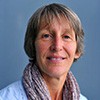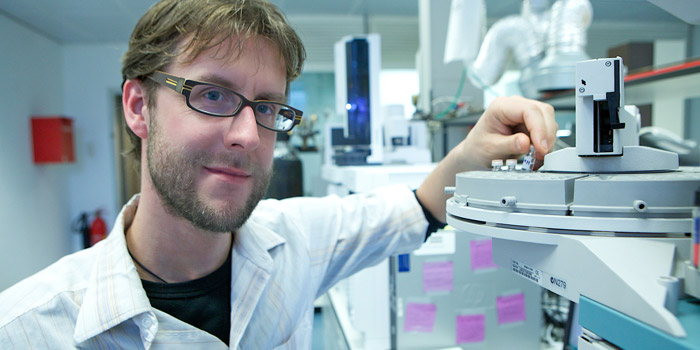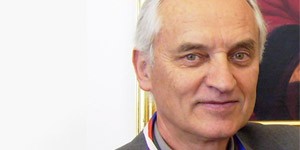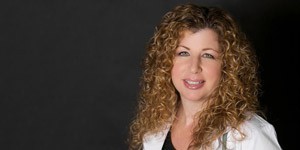By Lisette Wijnkoop

Lisette Wijnkoop was educated as a pharmacist and have been working a lot in the field of natural medicines like homeopathy. In 2006 she started with cannabis as medicine in a specialised cannabis pharmacy in Groningen in The Netherlands. This project ended after one year and she started to work at Bedrocan, both as a quality controller of the processing of cannabis and as an adviser for patients, doctors and others in the medical field. At this moment Lisette is adviser for the medicinal cannabis division of Information Center Cannabis, an independant organisation. With Arno Hazekamp and others they are starting a foundation to organise courses for medical doctors and give information to other groups interested in medicinal use of cannabis.
Meet the Experts is a series of interviews conducted by experts from the field of Cannabis to world leaders in research and clinical practice of Cannabis as medicine.
Dr. Arno Hazekamp (1976) studied molecular biology (Bachelor degree) and biopharmaceutical sciences (Masters degree) at Leiden University, the Netherlands. From 2001-2007 he focused his PhD research on the medicinal aspects of the cannabis plant, and was actively involved in setting up the Dutch medicinal cannabis program, working closely with Bedrocan and the Office of Medicinal Cannabis.
In the period 2007-2010 Arno further specialized as a medical cannabis expert, working closely with government agencies, universities and small pharmaceutical companies. From 2009-2013, Arno was a board member of the International Association for Cannabinoid Medicines (IACM). He is an active traveller and lecturer, and is considered a professionally trained medicinal cannabis advocate. In 2011, Arno became the Head of Research and Education (R&D) of Bedrocan BV. Currently, his main focus is on setting up the Dutch Expertise Center for Cannabis (DECC) where he works as an independent consultant. Arno has published over 30 scientific papers on various aspects of medicinal cannabis.

Lisette Wijnkoop: Arno, how would you introduce yourself?
Arno Hazekamp: I believe I am a born researcher. Already as a kid I wanted to know how things worked, by taking stuff apart and studying the little parts inside. I had a deep interest in the natural sciences biology, physics and chemistry. My first wish was to become a paleontologist and search for fossils, but because of my biology teacher in high school I finally went to University to become a plant biochemist. I developed a special interest in plant-based medicine. I was convinced I wanted to become an 'expert' in something, but just didn't know what my expertise would be. I never thought it would be medicinal cannabis, but I am glad it did. Now I consider myself a medicinal cannabis expert with already 16 years of experience.
Lisette Wijnkoop: What inspired you to study the cannabis plant?
Arno Hazekamp: Around the year 2000 I had been in the Pharmacognosy department (medicines from plants) of the University of Leiden (Netherlands) for several years: first as Master student, then as lab technician and as coordinator of the international students program. In this department, under supervision of the inspiring professor Rob Verpoorte, I learned that a lot can be understood about medicinal plants by studying the traditional use of those medicines. Cultural knowledge is just as important as chemical studies in modern labs, and both approaches should be used when developing modern medicines from traditional plants.
I was interested in doing a PhD but was afraid to write a thesis that no one would ever read because the topic was too specialized. Unfortunately, that happens quite a lot in scientific research. I wanted to work with high-tech equipment in the chemical lab, but I also wanted to leave the lab sometimes to travel and interact with actual users of the medicinal plants I studied. Then one day my professor came to me and asked me if I was interested in studying medicinal cannabis. I asked him where he got THAT idea, and he told me the Dutch government had decided they wanted to start a National medicinal cannabis program. The Netherlands was going to be one of the first countries in the world to fully legalize medicinal cannabis, and I was going to be the first researcher in this new research field. It was the perfect project for me.
Lisette Wijnkoop: Which aspects of cannabis did you study during your PhD?
Arno Hazekamp: The keyword of my PhD research was chemistry. The main question I tried to address was: what makes cannabis medicinal, what chemicals are hidden inside it, and how can it best be used? For that reason I titled my PhD thesis as 'Cannabis – extracting the medicine'. The logical first question I needed to ask was: How can we identify all the chemicals present in cannabis? Nowadays we know a lot about cannabinoids and terpenes and how they work together to cause the medicinal effects. But at that time scientists only knew about THC, because that is the chemical that makes you feel high. It took me two years to learn to identify all those different components, and to isolate purified cannabinoids from cannabis plants I obtained from official cannabis grower Bedrocan. These isolated cannabinoids were a tremendous help in the second part of my PhD study, where I focused on administration forms like vaporizing and tea. The questions I helped to answer included: is vaporizing better than smoking? What is the best way to make cannabis tea? And what kind of chemicals do you consume when using these different methods? I started to realize that almost all questions people had about medicinal cannabis, were related to chemistry. My research papers on vaporizing were so positive, that it became an important part in getting the Volcano vaporizer approved as medical device. And my cannabis tea study is still one of the few ever done on this topic.
Lisette Wijnkoop: What was your relationship with Bedrocan (the medicinal cannabis cultivator for the Dutch government) during your studies?
Arno Hazekamp: I am a biochemist, not a plant grower. So from the beginning of my research it was the perfect match: they grow cannabis, and I analyze it. As a researcher I needed to be sure I was able to always get the exact same type of cannabis, year after year. If not, it would not be possible to compare my studies with each other, because I would basically be studying different cannabis all the time. Bedrocan was the solution because they were able to grow standardized plants. Standardized means that the chemical composition is always the same, for all cannabinoids and terpenes. Growing cannabis may be quite easy, but growing standardized cannabis is still something Bedrocan does better than any other grower in the world. I had a fully legal and unlimited supply of high quality plants, and an academic lab full of equipment and knowledge. You can imagine I was the luckiest cannabis researcher in the world.
After my PhD I first worked for myself for a few years, (2006-2009) and I studied several medicinal plants besides cannabis. But finally my interest in the cannabis plant won, and I got hired as the head of Research and Development at Bedrocan. I kept that job until early 2016, when I decided to become an independent consultant and educator for the fast-growing international cannabis industry.
Lisette Wijnkoop: At a certain time you went frequently to the US. People there were interested in you. What was that? What made you so interesting?
Arno Hazekamp: Medicinal cannabis developed in different countries around the world, including The Netherlands and Israel. However, the cannabis industry developed most quickly in some US states like California, Washington and Oregon. People there wanted to set up testing labs and develop products for patients, in order to make a profit and set up a real business. However, the Federal Government did not allow the medical use of cannabis (it still does not) so many official experts were worried to work in a not fully legal industry. I got interested because the questions people were struggling with, were the exact same ones I had addressed in my research: lab testing, administration forms, quality standards. As a result, I was the perfect person to work with some of these new companies and dispensaries. It was not always easy to figure out if I was working with reliable people, because unfortunately the cannabis industry is full of people who mainly want to make a big profit. I tried to make sure my clients were really interested in quality and a scientific approach, even if it would take them more time and money to reach their goals. My American adventure only lasted a few years, because other countries were catching up with medicinal cannabis projects. Nowadays I work more often in Europe again.
Lisette Wijnkoop: In the Netherlands we also have coffeeshops for the recreational use of cannabis. They very much like to get a more legal status for the cultivation of cannabis that is illegal at this moment. Is it of any interest for you as a scientist and specialist in analyzing cannabis to contribute to this?
Arno Hazekamp: The main difference between cannabis from coffeeshops and from pharmacies is the quality and the consistency. When you buy cannabis from a coffeeshop or a street dealer, you never know for sure what you get. The chemical composition may be different every time, even when the product has the same name, like 'White Widow' or 'Amnesia Haze'. I know this because I did some studies into that too. But more importantly, coffeeshop cannabis may contain a large number of contaminants, including pesticides, heavy metals, microbes or even synthetic cannabinoids. You cannot smell, taste or see these contaminants so you may not even be aware you consume them. If there is a serious discussion about legalizing recreational cannabis use, then we need to address the standardization and quality control of that cannabis. That means my expertise will be very useful. Although my main interest is in medicinal cannabis use, I do know that many patients go to the coffeeshop for their cannabis. In the end, having access to safe and reliable cannabis is a benefit for everyone.
Lisette Wijnkoop: In the Netherlands medicinal cannabis was initially used mainly as a tea or by inhalation. Now cannabis oil is getting more popular. What do you think of this development? And what will be the next step?
Arno Hazekamp: Cannabis oil is a concentrated extract of cannabis, which makes it easier to consume a larger amount of cannabinoids and terpenes. Some patients need that and I believe that for some diseases cannabis oil may work better than, for example, vaporizing or eating it. However, cannabis oil is not the wonder drug some people claim it is. I think that the expectations people have of oil, is mainly driven by companies that are trying to sell as much oil as possible. Based on my research, I found that oil very often does not contain the amount of THC or CBD that is stated on the label. There may be many contaminants present in the oil, but there are no requirements to test for this. Also, the use of large amounts of oil raises serious health issues: what happens to the brain of a little kid when he gets a huge amount of CBD every day to treat epilepsy? Does oil really cure cancer, or does it sometimes make the cancer grow faster? There are many different oils for sale today, but very limited scientific proof of safety and efficacy. Right now, the market for oil is completely driven by commercial interests of the producers. I hope this will soon change, and that minimum quality standards are introduced to ensure the safety of the consumer.
Lisette Wijnkoop: Some people see medicinal cannabis as an alternative medicine. In the Netherlands regular physicians usually don't prescribe alternative medicine. Do you think cannabis deserves a place as a regular medicine? How can this status be achieved?
Arno Hazekamp: Physicians are trained in medical school to fully believe in clinical trials. That has been the dominant way of developing modern medicines for the last many decades, and lots of life saving medical drugs have been developed in this way. If something is not studied in clinical trials, most physicians do not accept it as a modern medicine, but call it alternative medicine. Also, modern medicine comes in the form of a nice pill, inhaler or skin cream. No modern medicine is consumed in the form of a plant. So cannabis is in a strange spot today: it is too herbal for modern medicine, but it is too potent to be regulated as an alternative medicine. After all, you can smoke it and it can make you high. It is hard to blame physicians that they have a hard time believing cannabis is not (yet) a useful medicine. Nevertheless, more and more countries are legalizing medicinal cannabis, and more physicians are getting used to the idea. It helps to understand why physicians are opposed to cannabis and start a good discussion with them. What is needed most, is a good medical training program that shows the scientific knowledge about cannabis of recent years. More and more clinical trials are done, but there is still much to learn. Besides clinical trials, we may also learn a lot through interviews and surveys among experienced medicinal cannabis users.
Lisette Wijnkoop: How do you see the international development of medicinal cannabis, especially in Europe? What do you think your role is or can be in this?
Arno Hazekamp: The most important thing to happen in the next few years is: seeing what we have learned from cannabis use of the last few years, and decide how we want to do better. Medicinal cannabis is already an unstoppable force, so let's lead the cannabis industry in the right direction. The key is to introduce international quality standards. After all, these exist also for cars, microwaves, food and other medical products. So why not for cannabis. Quality standards should apply to all stages of medicinal cannabis: plant growing, product development, lab testing etc. If a company breaks the rules, they should be punished and perhaps even be closed. By looking at rules and regulations in different countries we should be able to identify 'best practices', solutions that have proven to work in real life situations.
Education, based on scientific research as well as surveys among experienced users, is the key in making sure that the regulators of the system (Government, medical authorities, quality inspectors) know how to do their job in a fair and efficient way. Especially in the field of education on medicinal cannabis I can see a role for myself. Every year I organize a one-week long course called the Masterclass Medicinal Cannabis. I would like to expand this course, and work with other organizations, to create a truly European training network.
Lisette Wijnkoop: What most excites you about the future of cannabis as medicine?
Arno Hazekamp: That it is science-based but at the same time patient-inspired. After all, medicinal cannabis would not be so big today if patients worldwide would not have pushed the topic so much. Proper research by trained scientists is important, but WHAT we study should be based on what real patients need. I have always followed this belief in my own studies.
Historically, I think cannabis will become the 'traditional' medicine that has made the biggest leap forward into 'modern' medicine. As a result, I expect many more plant medicines to follow which may revolutionize the way we perform medicine. After all, when cannabis can make it as modern medicine, how can we stop other plants from following the same path towards modern medicine. Yes, the future will be full of plant-based medicines.


